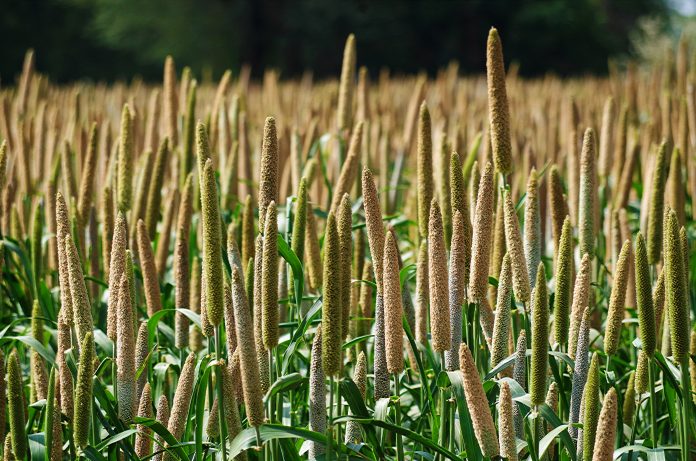David Salt, Director of the Future Food Beacon at the University of Nottingham explains the world-class research talking place to address the challenge of providing nutritious and palatable food
The Future Food Beacon is one of six Beacons of Excellence invested in by the University of Nottingham to tackle significant global challenges. The Future Food Beacon has expertise across the food system, from soil, molecules, and meals to health, cultures and histories. The mission of the Future Food Beacon is to deliver world-class research to help address the challenge of providing sufficient quantities of nutritious and palatable food to a growing world population within a changing environment.
The Future Food Beacon brings together the power of genome-enabled plant and animal sciences with cutting-edge nutritional science, food processing, and manufacturing and digital technologies, informed by an understanding of the economic, legal, social and ethical issues that underpin and shape food systems.
The Future Food Beacon is targeting six of the major challenges to ensure global food security:
- Soil challenges: Reducing soil erosion and improving soil fertility;
- Water challenges: Improving water conservation through crop resilience and irrigation systems;
- Production challenges: Maximising yields, stabilising yields in the face of climate uncertainty, minimising waste and improving access;
- Nutrition challenges: Improving the nutrient density of staple and processed foods;
Protein challenge: Providing alternative and palatable proteins for human and animal diets and; - Climate challenges: Developing robust food systems that are able to cope with climate uncertainty.
Understanding food as a global challenge means developing relationships and networks worldwide. The Future Food Beacon is concentrated on developing research networks, capacity building, and skills sharing across the world but particularly in the global south. To that end, we have developed a number of research projects that allow us to share our research skills and knowledge with food producers both on and off the farm, nationally and internationally, and further develop capacity through research training programmes.
The Future Food Beacon is developing partnerships with key players in the cocoa industry, building relationships with FEDECACAO and Casa Luker in Columbia, and the Cocoa Research Centre in Trinidad.
We are working with an SME in Nottingham, Luisa’s Artisan Chocolates, to connect commercial chocolate makers with cocoa growers in Columbia. This project aims to develop on-farm processes to optimise cocoa fermentation for improved chocolate flavour and quality. Using hand-held DNA sequencing equipment (the innovative MinION developed by Oxford Nanopore), researchers and farmers will measure the microbes fermenting the cocoa beans, in order to better understand the fermentation process. Once this process is understood, researchers can work with farmers to manipulate fermentation in order to achieve the best possible flavour for the chocolate maker, and ultimately, the consumer.
The Future Food Beacon is working with Professor Martin Broadley, a Professor of Plant Science at the University of Nottingham (UoN). Prof Broadley was the recipient of a £4.4 million Bill and Melinda Gates Foundation grant for the GeoNutrition project. Working with project partners including UoN, LUANAR, Addis Ababa University, governments in Malawi and Ethiopia, the International Maize and Wheat Improvement Centre, the International Crops Research Institute for the Semi-Arid Tropics, the World Agroforestry Centre, Rothamsted Research, London School of Hygiene and Tropical Medicine, and the British Geological Survey, Professor Broadley aims to help alleviate the problem of hidden hunger in Malawi.
Mapping the country through crop and soil samples from some 2000 farms, the project will identify nutrient deficiencies in the soil, and thus the crops. Such deficiencies put children in particular at risk of infection and developmental problems. The project is interdisciplinary, using research expertise from people such as Dr Kate Millar of the Centre for Applied Bioethics and the Future Food Beacon, to examine the ethical and socio-economic issues of adding minerals to the food chain via fertilisers or enriched food. The knowledge gained in Malawi will be used to inform geospatial mapping in Ethiopia and has the potential to influence public health interventions across the region.
Collaborations with colleagues at the Senegalese Institute for Agricultural Research (Institut Sénégalais de Recherches Agricoles) and colleagues in France has led to a new project that will identify varieties of pearl millet with improved root architecture and anatomical traits designed to improve resilience to drought stress. Pearl millet is a staple food of approximately 100 million people, and 90% of it is grown by smallholder farmers. Drought in the Sahel, a region bordering the southern edge of the Sahara in Africa, is a major hindrance to pearl millet production. As climate change brings further unpredictable weather patterns, selecting new varieties of pearl millet is imperative.
The team will collect root samples during field trials in Senegal, which will then be shipped back to a specialist facility at the University of Nottingham. Using a new anatomical imaging technique developed with U.S. colleagues at Penn State (termed ‘anatomics’), researchers will rapidly screen varieties for desirable root anatomical traits from a diverse collection of pearl millet lines. The ultimate goals of this project are to pinpoint the key genes that control desirable traits, share expertise, resources and data with research partners, breeders, and smallholder farmers to advance breeding programmes, and develop more resilient crops. This will have a real impact on the everyday lives of people living in the Sahel, and in other communities where pearl millet is grown as a staple crop.
The Future Food Beacon is focused on building strategic links in China. Two recent successful grants, funded by Innovate UK, focus on the challenges faced by Chinese agriculture, building our specialist capacity in the country, and further developing our networks. Research and Developing of Alternative Feeding Antibiotic Products from Herbs will explore the possibilities of traditional Chinese herbal and botanic medicine in the effective rearing of livestock. Led by Prof Serafim Bakalis in Engineering, the project concentrates on reducing and/or preventing infectious diseases in pigs and poultry, in a cost-effective and more efficient way. This project brings together Micolta, a Chinese firm specialising in traditional Chinese medicine; KPAD, a food process analysis and design consultancy; the University of Nottingham; and Hunan Agricultural University. The project aims to decrease the use of antibiotics and hormones in livestock production, by finding alternative plant sources.
FARM WATCH: Fight Antibiotic Resistance with Machine Learning and a Wide Array of Sensing Technologies is led by Dr Tania Dottorini, of the School of Veterinary Medicine and Science at UoN. The rapid increase in poultry production to meet growing demand in China has resulted in the extensive use of antibiotics. This has been accompanied by increased antibiotic resistance (ABR) and zoonotic transfer to humans via direct contact, environmental contamination, and food consumption. Effective and rapid diagnosis of bacterial infection in chickens could decrease the need for antibiotics.
FARM WATCH will identify and validate new diagnostic biomarkers for use in the Chinese chicken farming industry. Biomarkers will predict and detect a bacterial infection, the insurgence of ABR, and zoonotic transfer to humans. Using machine learning and cloud computing, large-scale data collection and statistical modelling will allow a thorough understanding of epidemiological pathways of infection, which will allow the development of biomarkers. This will ultimately lead to improved poultry production practices.
David Salt
Director of the Future Food Beacon
Professor of Genome Enabled Biology
University of Nottingham
Tel: +44 (0)115 951 6246
future-food@nottingham.ac.uk
www.nottingham.ac.uk/future-food
*Please note: this is a commercial profile











